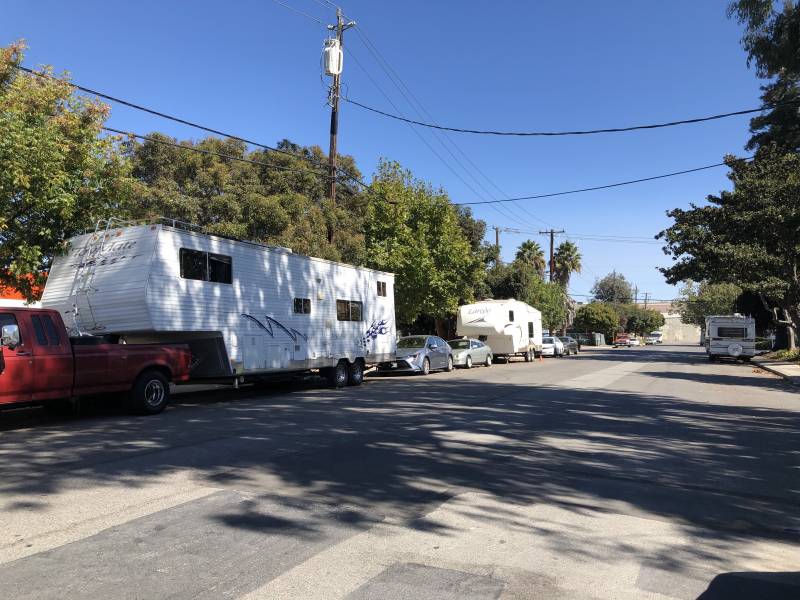After moving several times between different apartments in the region, Masvalo decided to cash out her savings and buy the van.
Now, she’s watching a local measure on Mountain View’s November ballot. Measure C would ban oversized vehicles, or any vehicle “which exceeds 22 feet in length or 7 feet in width or 7 feet in height,” from parking on streets that are 40 feet or narrower, unless the vehicle is parked for short duration activities like loading and unloading.
As more and more people like Masvalo park along major thoroughfares and back roads, the Mountain View City Council has come under pressure from homeowners who complain that oversized vehicles block bike lanes and line of sight for drivers.
After years of talking about a “safe parking” program, the city finally created one in 2019. People can park their RVs or oversized vans in sections of dedicated parking lots, as long as they agree to sign up for social services and support to find permanent housing.
Mountain View resident Prody Hazarika supports Measure C, because he thinks people should use the safe parking program instead of parking on the street.
“We have to encourage the right path,” he said on KQED Forum. “That can only be accomplished where you have parking lots where you can get better in life.”
Hazarika believes that Measure C gives homeowners a voice.
“[Homeowners] have a right to demand safe streets and good community living,” he said.
His sentiments are echoed by Mountain View Mayor Margaret Abe-Koga. She also doesn’t believe RVs are a permanent solution to housing and said Measure C would encourage people to find more stable housing or to use the city-funded safe parking program.
“What I’m really proud of is the safe lots that we’ve opened,” she said. “They are successful and I’m open to adding more spaces if we can.”
Mountain View’s Safe Parking program is the largest of its kind in Santa Clara County, with 75 spots located across the city. But according to a Safe Parking report from September, the city’s homeless population has grown over the years, from 276 in 2015 to about 606 in 2019. Move Mountain View, a nonprofit which helps run the safe parking program, says safe parking lots are often filled, leaving many on the waitlist.

